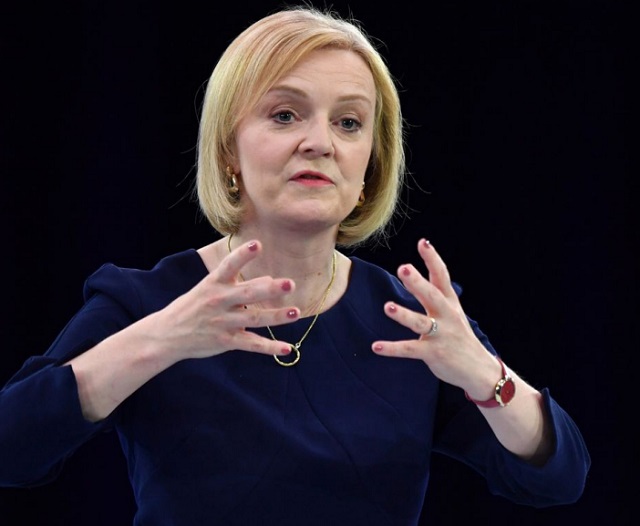
London, UK | Xinhua | Liz Truss, prime minister of the United Kingdom (UK), on Wednesday defied calls to resign after almost all the measures in her government’s economic blueprint had been scrapped following market turmoil.
Responding to a question from the opposition Labour leader Keir Starmer on why she should remain in power during the weekly Prime Minister’s Questions (PMQs) in Parliament, Truss said: “I am a fighter and not a quitter.”
The prime minister, who has been in office for only six weeks, is facing growing pressure to resign after the “mini-budget,” the fiscal plan announced by her government last month, caused economic chaos and tanked the ruling Conservative Party’s poll rating.
The mini-budget, which contained controversial debt-funded tax cuts, has been blamed for plunging the British pound to a 37-year low against the U.S. dollar, while pushing up the cost of government borrowing and mortgage rates.
One of the main architects of the fiscal plan, Kwasi Kwarteng, had to resign last week from his position as chancellor of the exchequer. His successor, Jeremy Hunt, tore up almost all the announced tax cuts and limited the government’s cap on rising energy prices.
With her economic strategy reversed and Kwarteng gone, Truss’s premiership is thought to be increasingly untenable. At least five Tory lawmakers have publicly demanded her resignation, and Truss has been seeking to pacify disgruntled voters by owning up to her mistakes.
In an interview with the BBC on Monday, the prime minister apologized for going “too far and too fast” with the economic policies and took responsibility for “the mistakes that have been made” in the first weeks of her premiership. However, she vowed to stay on and take the party to the next general election.
“I have acted in the national interest to make sure that we have economic stability,” she said in Wednesday’s PMQs, referring to the removal of Kwarteng and U-turns on the mini-budget measures.
 The Independent Uganda: You get the Truth we Pay the Price
The Independent Uganda: You get the Truth we Pay the Price



